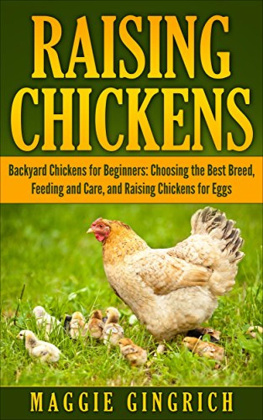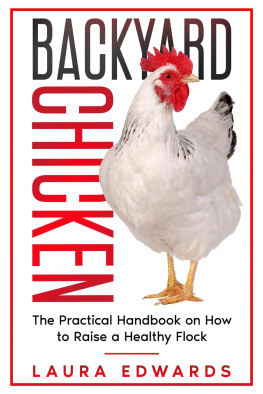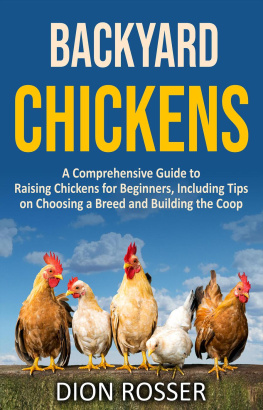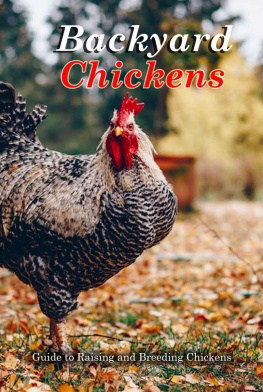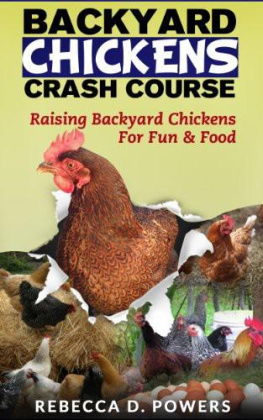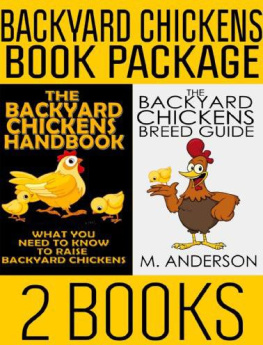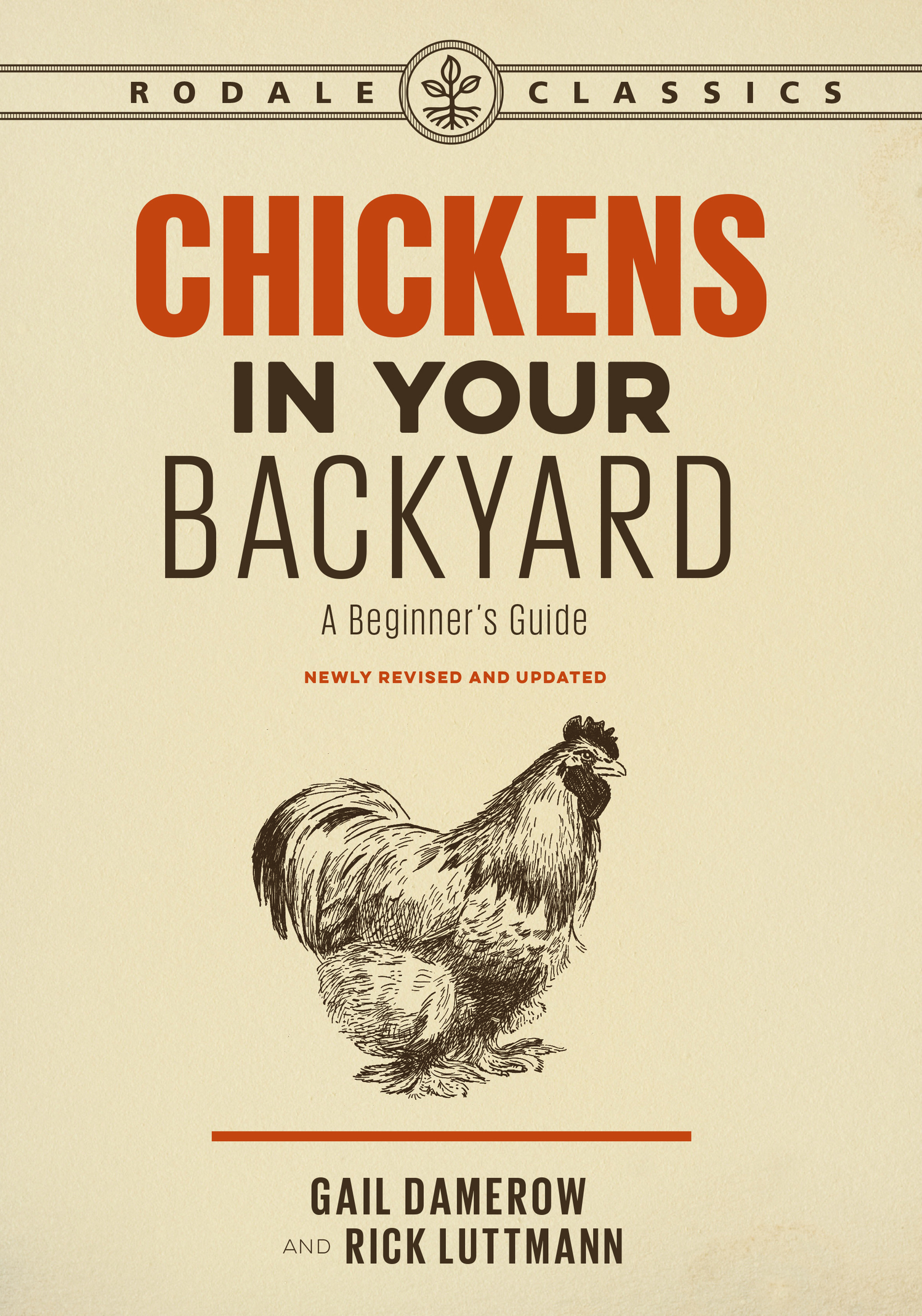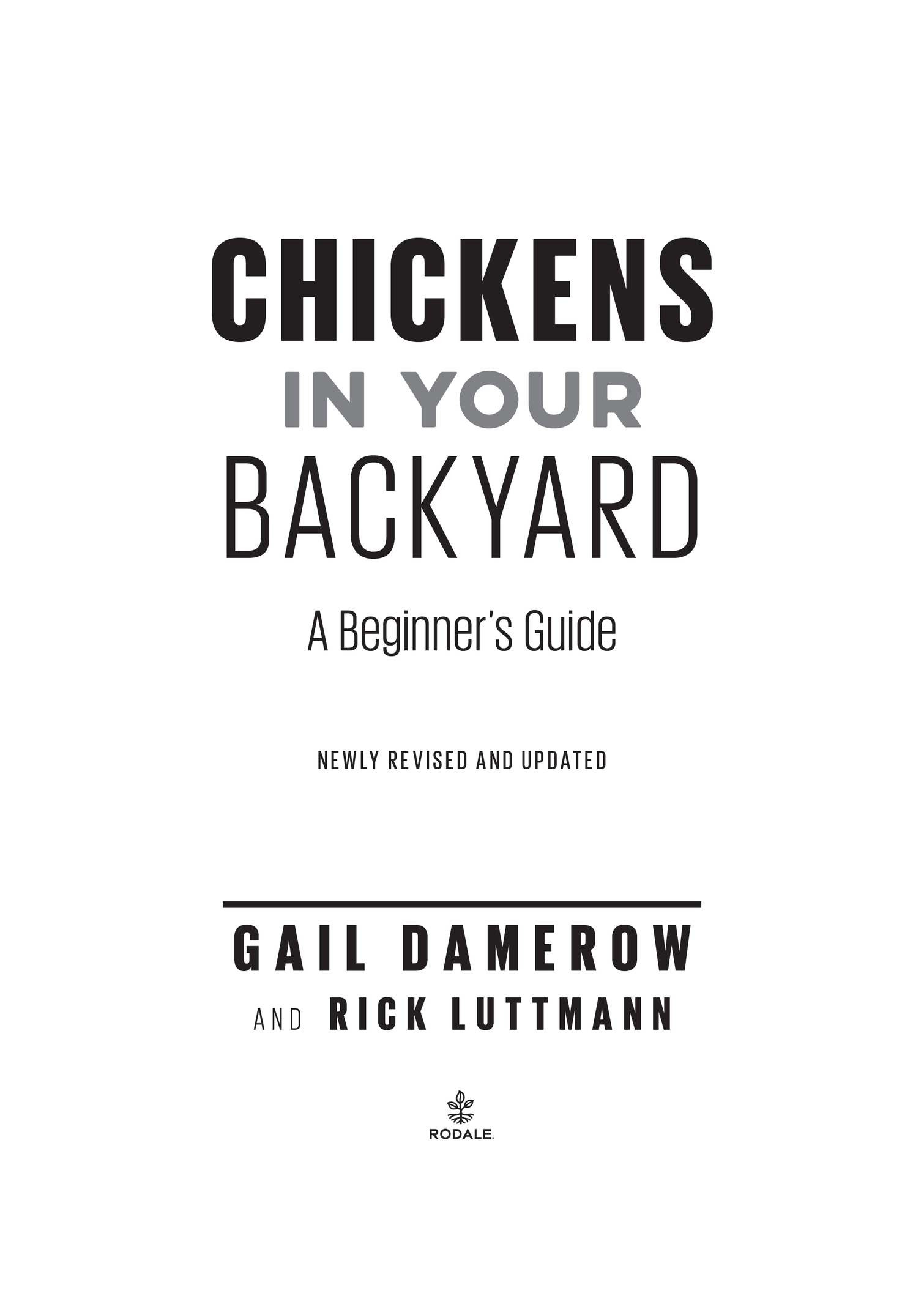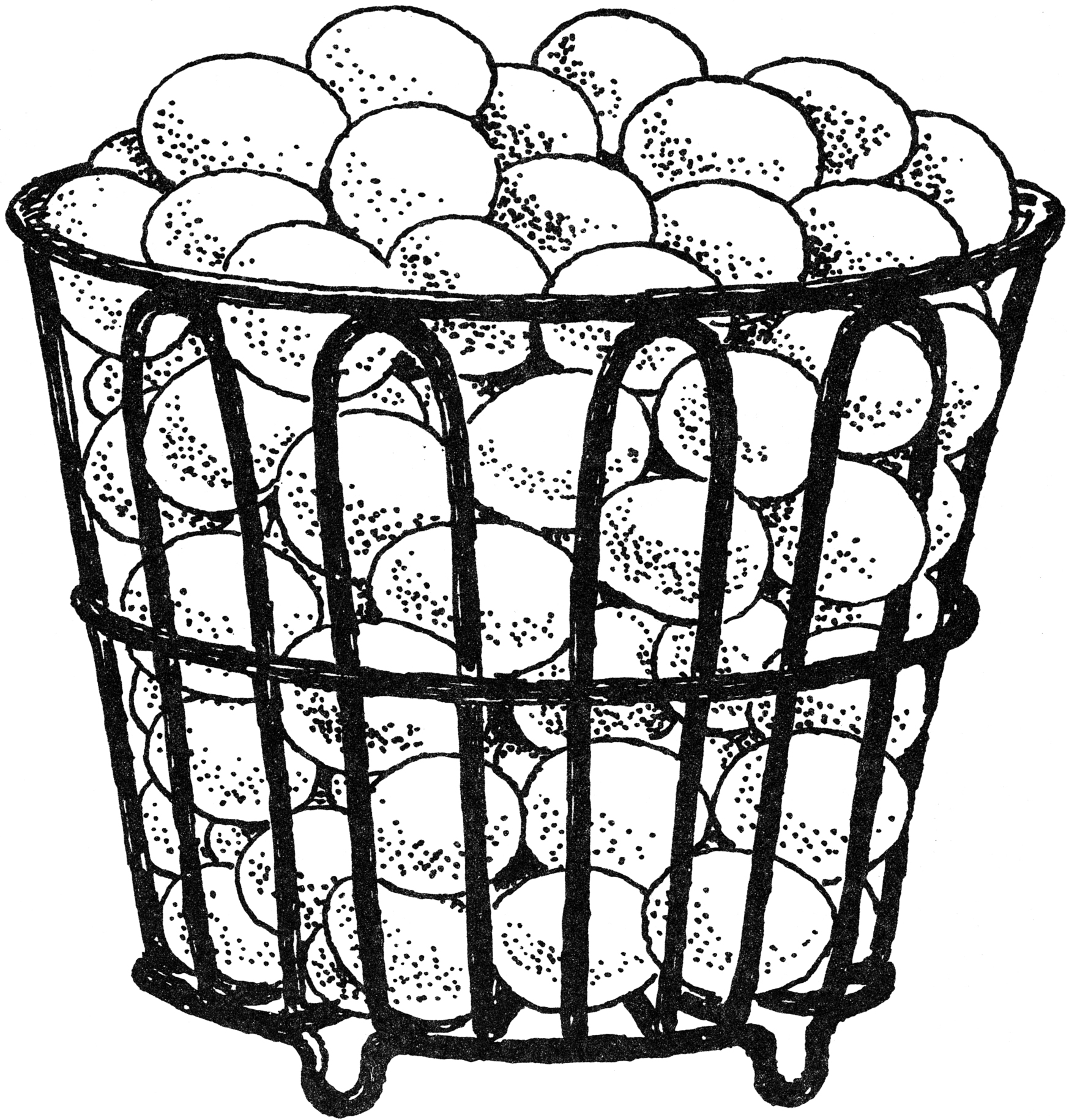Contents
Copyright 1976 by Rick and Gail Luttmann
New text copyright 2018 by Gail Damerow
All rights reserved.
Published in the United States by Rodale Books, an imprint of the Crown Publishing Group, a division of Penguin Random House LLC, New York.
crownpublishing.com
rodalebooks.com
RODALE and the Plant colophon are registered trademarks of Penguin Random House LLC.
Originally published in different form by Rodale Books, an imprint of the Crown Publishing Group, a division of Penguin Random House LLC in 1976.
Library of Congress Cataloging-in-Publication Data is available upon request.
ISBN9781635650969
Ebook ISBN9781635650976
Illustrations by Sidney Quinn
Illustrations on by Bethany Caskey
Cover design by Christina Gaugler
Cover illustrations by Sidney Quinn
v5.3.1
a
IN MEMORY OF GEORGE MATSON, WHO OFFERED ENCOURAGEMENT WHEN WE WROTE THE FIRST EDITION OF THIS BOOK, WHO ALWAYS KNEW HOW TO MAKE US LAUGH, AND WHO CONTINUES TO LIVE IN OUR HEARTS
CONTENTS
INTRODUCTION: BEFORE THE BEGINNING
Is it any wonder that no one can decide which came first, the chicken or the egg? Raising chickens is a continuous cyclical process, and the only way to describe it is to break into the cycle at an arbitrary point and call it the beginning. In organizing this book, weve chosen one place to start, but your immediate needs may require you to skip chapters of no urgency to you at the moment.
You really should have your facilities and feed lined up before acquiring your first chickens, but if you want to dream about your future flock while making preparations for their arrival, you might want to skip to Starting Your Flock on . Weve tried to organize the information presented here to make it easy for you to jump around as much as you like and to skip chapters that you dont immediately need; you may not be ready to hatch eggs in an incubator, for instance, and you may never be ready to harvest homegrown chicken barbecue. We recommend, though, that you do read Chapter 1 first, so you will be up to speed on the meanings of specialized poultry-keeping terms.
In raising chickens ourselves and in talking about it with others, weve developed the philosophy that mindlessly following somebody elses list of rules is no substitute for a thorough understanding of the nature of chickens, the function of the equipment, and the purpose of the chicken keepers various activities. For one thing, a little initiative can save you a lot of money. No need to buy the latest expensive chicken-keeping doodads when, with a little savvy, you might modify something you have lying around the garage to suit your needs. (If you can cleverly improvise even once, you may save far more than you spent on this book.) As long as your chickens basic needs are met, theres no one right way of doing things, but there are plenty of wrong ways.
For another thing, people have such a variety of reasons for raising chickens that we have to allow for flexibility. Maybe you want a couple of pet bantams roaming in the backyard, or maybe you want your flock to supply eggs or meat for your family, or maybe you are mainly interested in winning first prize at the county fair. Your particular purpose will determine your perspective.
Finally, the better informed you are, the less likely you are to be an unhappy first-time chicken-keeper. For instance, weve frequently heard complaints from newbies whose hens arent laying. Maybe the chickens are just reaching maturity and havent yet started laying. Or, if its winter, hens typically dont lay well (as youll soon find out)but by mid-spring, youll be so sick of omelets, quiches, and Denver sandwiches that youll be begging the hens to stop!
Of course, if youre truly unhappy with your chickens, it may be possible that you were the recipient of a bad egg or two. As in every industry, there are always a few who take deliberate advantage of the unwary, while some dealers may be merely incompetent or innocently ignorant. But most chicken-keepers are honest and helpful folks who are eager to share their experiences and their love of birds with you.
People who are just beginning to raise chickens occasionally express the opinion that all the lavish care chicken-raisers expend on their flocks seems unnatural and unnecessary, for surely chickens must have gotten along all right for thousands of years out there in the wild all by themselves. But, remember that chickens as we know them today have come a long way from their natural state, due to domestication and controlled breeding to suit our needs. The human race has made a Faustian bargain with chickens, and we must now pay the price of having molded them to our needs by giving them the care they have come to depend on, require, and deserve.
This book is a guide to enlightened intervention in the affairs of chickens.
It is intended for beginnersthe ABC of keeping chickens, so to speak. When we wrote the first edition, we were experts in beginners mistakes, having made most of them ourselves. We wrote the book after having looked everywhere for a good, clear, comprehensive, nontechnical, nonindustrial book about raising a flock in the backyard. It didnt exist. So, we wrote it.
Much has happened since then. The 21st-century chicken boom has brought a lot of new folks into the fold. The exponential increase in interest has been accompanied by innumerable new studies about the nature of chickens and their needs. The internet has spawned countless poultry-keeping blogs and forums, some offering sound advice, others spouting not-so-sound nonsense. With several more decades of chicken-keeping under our belts, our own knowledge has expanded. Its high time for an updated edition of this book. And here it is.
WORDS YOU SHOULD KNOW
A number of words are peculiar to the language of poultry-raising. Knowing and understanding these words will help you communicate with other people about chickens, especially when a word possesses a different or more precise meaning than it has in common usage. This chapter is intended as a reference both when unfamiliar words come up in your conversations with other poultry people and when these words occur in later chapters. This chapter serves as something of a glossary, with explanations developed more fully later on.
A bunch of chickens is officially called a flock. Chicken means a specific kind of bird, but it does not tell you the birds sex. An adult female chicken is a hen, and an adult male is a cock or a rooster. Some folks just shorten it to roo.
A male chicken younger than 1 year is a cockerel, and a female chicken under 1 year is a pullet. (Dont confuse this word with poult, which is a baby turkey and has nothing to do with this book). A baby chicken of either sex is a chick. The sound a chick makes is a peep, and youll sometimes see peep applied to the chick itself.
Chickens venture forth during the daytime, but they always return to the same place to sleep at night. This habit is called


